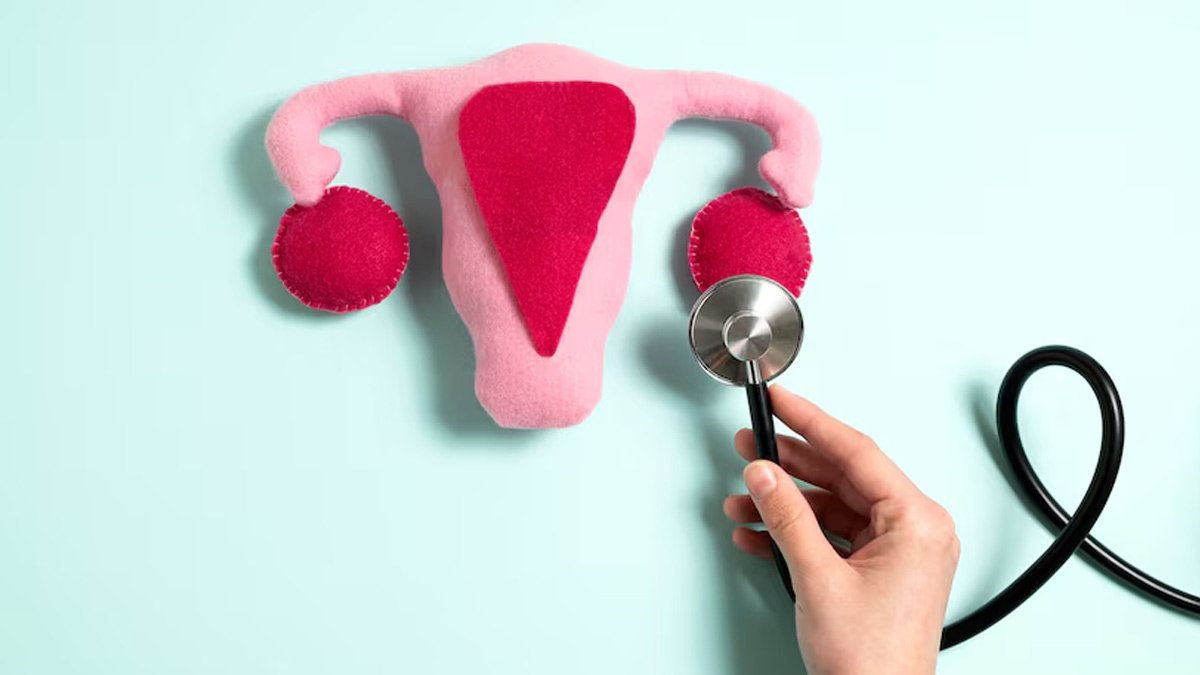Polycystic Ovary Syndrome (PCOS) is a common hormonal disorder affecting millions of women worldwide. One of the most challenging aspects of PCOS is its impact on fertility. While many women with PCOS struggle to conceive, it is possible to manage symptoms and enhance fertility with the right approach. In this article, we’ll explore how PCOS affects fertility and the treatments and lifestyle changes that can improve your chances of conception.
What is PCOS, and How Does It Affect Fertility
PCOS is a hormonal imbalance that causes the ovaries to produce excess androgens (male hormones), leading to the development of multiple small cysts in the ovaries. These cysts can disrupt ovulation, causing irregular periods or even anovulation (the absence of ovulation), which directly impacts fertility.
Women with PCOS often experience irregular ovulation, making it difficult to conceive. The hormonal imbalance also affects the quality of eggs, further complicating the process of natural conception. Other symptoms of PCOS, such as insulin resistance, weight gain, and inflammation, can worsen fertility problems if left unmanaged.
Common Symptoms of PCOS
PCOS manifests through a range of symptoms, many of which can contribute to infertility. Here are the most common signs:
- Irregular Menstrual Cycles: Due to inconsistent ovulation, periods may be infrequent, absent, or too frequent.
- Excess Hair Growth (hirsutism): High levels of male hormones can lead to unwanted hair on the face, chest, and back.
- Weight Gain: Many women with PCOS experience difficulty managing their weight, which exacerbates insulin resistance.
- Acne and Oily Skin: Hormonal imbalances can cause acne, particularly on the face, chest, and upper back.
- Thinning Hair: Hair loss or thinning can occur on the scalp, similar to male-pattern baldness.
Each of these symptoms ties into the broader problem of infertility. Hormonal imbalances, weight issues, and metabolic problems all play a role in making conception more difficult.

Medical Treatments to Enhance Fertility with PCOS
If you’re struggling with infertility due to PCOS, there are several medical treatments available to help boost fertility.
1. Medications
- Clomid (Clomiphene): A common first-line treatment to stimulate ovulation in women with PCOS. It encourages the release of eggs by affecting the hormones responsible for ovulation.
- Letrozole: Originally a cancer medication, Letrozole has proven effective in inducing ovulation and is often recommended for women with PCOS who did not respond to Clomid.
- Metformin: Used to manage insulin resistance, Metformin can help restore regular menstrual cycles and improve ovulation in women with PCOS.
2. Ovulation Induction
- Medications like gonadotropins may be prescribed if other treatments fail to induce ovulation. These injectable hormones stimulate the ovaries to produce and release eggs.
3. In Vitro Fertilization (IVF)
- For women with PCOS who have not responded to other fertility treatments, IVF offers a more controlled approach to conception. Eggs are fertilized outside the body and then implanted in the uterus. While IVF can be expensive, it has a higher success rate for women with PCOS.
Each treatment option should be discussed with a fertility specialist to determine the best course of action based on individual symptoms and health conditions.

Natural Ways to Manage PCOS and Boost Fertility
In addition to medical treatments, lifestyle changes play a crucial role in managing PCOS symptoms and enhancing fertility. These natural approaches can make a significant difference in hormone balance, insulin levels, and ovulation.
1. Diet and Nutrition
- A PCOS-friendly diet focuses on whole, unprocessed foods that stabilize insulin levels. Foods rich in fiber, such as leafy greens, whole grains, and legumes, can help regulate blood sugar.
- Incorporate healthy fats (avocados, nuts, seeds) and lean proteins (fish, chicken) to maintain hormonal balance.
- Avoid refined carbs and sugars that cause blood sugar spikes and worsen insulin resistance.
2. Exercise and Weight Management
- Regular exercise helps to manage weight, improve insulin sensitivity, and reduce inflammation—all key factors in improving fertility with PCOS.
- Moderate exercise such as brisk walking, swimming, or yoga can boost ovulation. Aim for at least 30 minutes a day, five times a week.
3. Supplements
- Inositol is a natural supplement that has shown promise in improving insulin sensitivity and ovulation in women with PCOS.
- Vitamin D and Omega-3 fatty acids are also linked to improved reproductive health, particularly in women with PCOS.
By adopting a holistic approach that includes proper diet, exercise, and supplements, women with PCOS can often see improvements in their fertility and overall health.

Coping with PCOS-Related Infertility: Emotional and Mental Health
Infertility due to PCOS can take a heavy emotional toll on women and couples. It’s important to recognize and address the emotional challenges that come with fertility struggles.
1. Seek Support: Joining a support group can provide a safe space to share experiences, learn from others, and receive emotional encouragement. Many online communities are dedicated to women with PCOS and infertility.
2. Counseling and Therapy: Professional counseling can help individuals and couples navigate the complex emotions surrounding infertility. Cognitive-behavioral therapy (CBT) can reduce anxiety and depression related to fertility issues.
3. Mind-Body Techniques: Practices such as meditation, yoga, and deep breathing exercises can reduce stress, improve mental well-being, and even positively affect fertility outcomes by creating a more relaxed and balanced state of mind.
Remember, fertility challenges are difficult, but you’re not alone. Seeking emotional support is just as important as addressing physical symptoms.
Frequently Asked Questions (FAQs)
1. How does PCOS cause infertility? PCOS causes hormonal imbalances that disrupt ovulation, making it difficult for women to conceive naturally. The condition may also affect egg quality and increase the risk of miscarriages.
2. Can women with PCOS get pregnant naturally? Yes, women with PCOS can get pregnant naturally, though it may take longer. Managing symptoms through lifestyle changes or medical treatments can increase the chances of natural conception.
3. What are the best fertility treatments for PCOS? The most effective fertility treatments for PCOS include Clomid, Letrozole, Metformin, and IVF. A fertility specialist can recommend the best option based on individual needs.
Conclusion
While PCOS and infertility present unique challenges, managing symptoms through medical treatments and lifestyle changes can significantly enhance fertility. By taking a proactive approach that includes diet, exercise, medical intervention, and emotional support, women with PCOS can improve their chances of conception and lead a healthier, more balanced life.
If you’re struggling with PCOS-related infertility, consult a healthcare provider or fertility specialist to explore your options for managing symptoms and improving fertility.